1. That’s My Mama (1974)
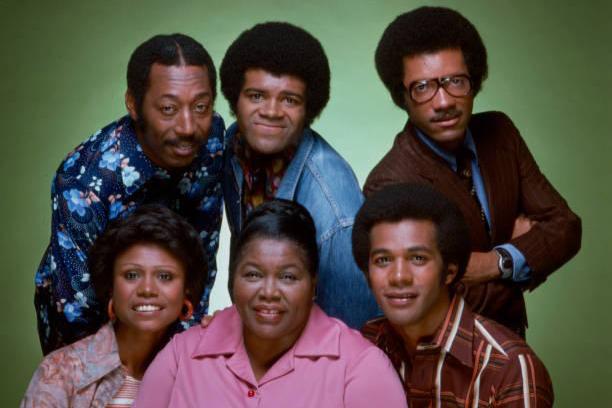
The landscape of television is littered with fascinating experiments. Sometimes, a show comes along that everyone tunes into, it has a great hook, a fresh cast, or an ambitious premise, but for one reason or another, it just doesn’t stick. For example, this show, set in a bustling, close-knit African-American community in Washington, D.C., That’s My Mama was a warm and humor-filled sitcom focusing on the life of Clifton Curtis, a handsome, unmarried barber who ran the family shop. The core of the show was his hilarious and often maddening relationship with his overprotective, always-meddling mother, Mama Curtis. The comedy was driven by their loving but exasperated dynamic, Mama’s constant attempts to set up her son, and the colorful regulars who frequented the barbershop. It was a show with heart, offering a relatable look at working-class family life. However, it aired during a golden age of other successful Black-led sitcoms like Good Times and Sanford and Son, and it struggled to carve out a massive, sustained viewership in a crowded marketplace. Although it offered a strong, positive, and humorous portrayal of a community, the series lasted just two seasons, and while largely forgotten today, it holds a respectable place as a pioneer in showcasing a dynamic ensemble cast.
2. Manimal (1983)
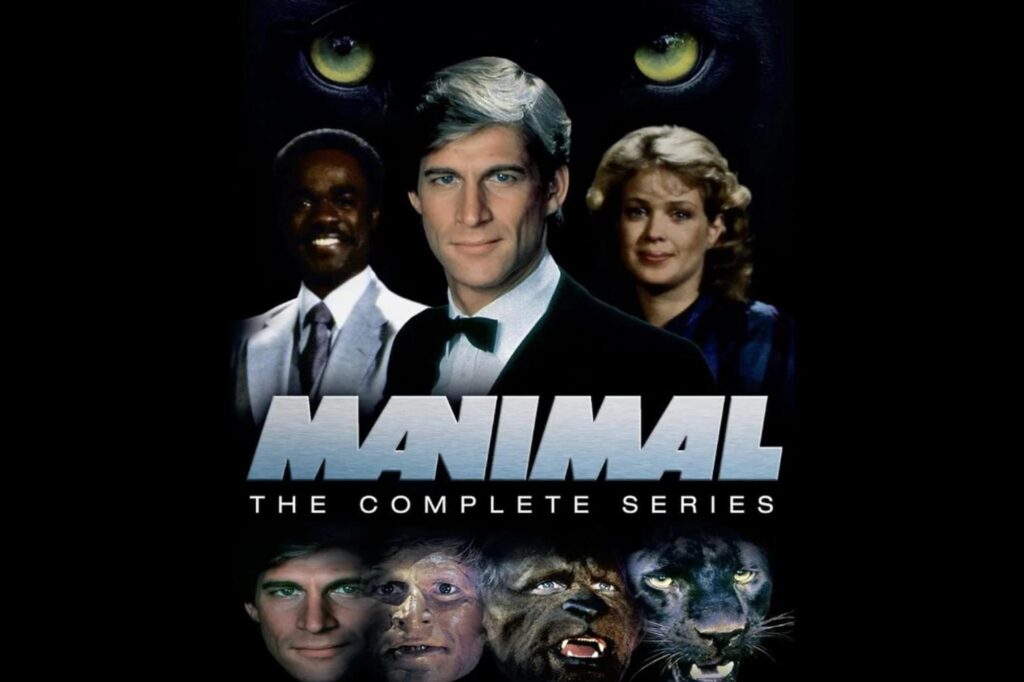
A bizarre and thrilling concept, Manimal centered on Dr. Jonathan Chase, a wealthy and brilliant professor who had mastered the ancient Tibetan secret of being able to transform into any animal. He used this incredible, secret ability to assist the NYPD in solving baffling crimes. The show sounded like a comic book brought to life and premiered with significant buzz, thanks in no small part to the visual effects. While primitive by today’s standards, seeing a man physically morph into a majestic black panther or a soaring peregrine falcon live on prime-time television was a technical marvel at the time. However, the transformation sequences, while impressive, were also costly and time-consuming, eating up significant screen time and budget. The slow pacing and a lack of compelling weekly villains caused the initial curiosity to fade quickly. The show was pulled after just eight episodes, but the strange, unforgettable thrill of those on-screen shifts remains a potent memory for those who saw it.
3. Automan (1983)
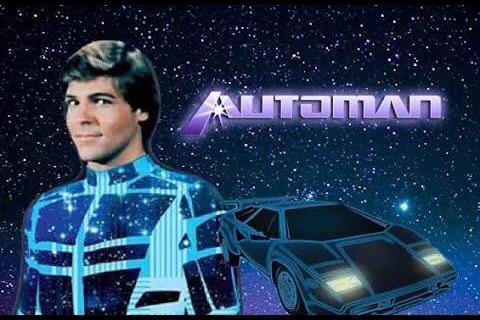
Born in the wake of the groundbreaking movie Tron, Automan introduced the world to an almost too-perfect, computer-generated superhero named Automan, a holographic crime fighter who could only exist between midnight and dawn. The series followed a police computer programmer, Walter Nebicher, who accidentally created the eponymous hero. Automan was an arresting sight: clad in a glowing, geometric suit and capable of generating a dazzling, high-speed car, the Autocar, that could turn 90-degree corners in impossible physics-defying maneuvers. The show’s production was a massive effort, heavily relying on early computer graphics and dazzling blue-screen work to capture that signature neon-soaked, futuristic aesthetic. Despite the technical spectacle and a premise that captivated younger audiences, critics and many adults found the plots thin and the lead character too stiff. It ran for only 12 episodes, a glowing, short-lived monument to TV’s attempt to keep pace with the era’s new wave of high-tech sci-fi cinema.
4. Misfits of Science (1985)
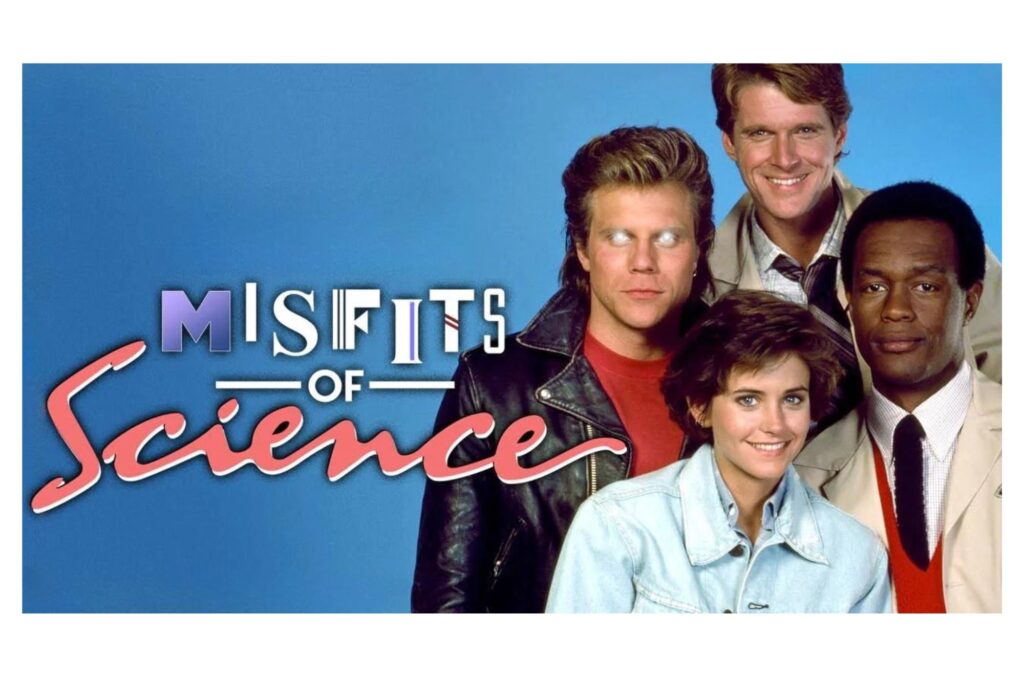
Years before every major network show was a superhero team-up, Misfits of Science offered a quirky, lighter take on the genre. The series focused on a group of gifted but misunderstood individuals brought together by a young scientist to work for a covert government research division. Its titular “misfits” included a teenager who could shrink to six inches, a rock-and-roll musician who could project electricity, and a young woman with latent telekinetic powers, played by a then-unknown Courteney Cox. The show balanced campy special effects with genuinely charming character interactions and a fun, adventurous spirit. It had a devoted, if small, cult following who appreciated its blend of humor and sci-fi action. Unfortunately, the network struggled to market its unusual blend of genres, and the expensive production coupled with modest ratings led to its cancellation after a single, 16-episode season. Today, it feels like a sweet, nostalgic precursor to the superhero blockbusters we now take for granted.
5. Supertrain (1979)

Supertrain is arguably one of the most famous, and certainly one of the most expensive, television failures in broadcast history. NBC sank a monumental $12 million (a staggering sum for a TV show in the late 70s) into building the sets and acquiring the necessary equipment for this ambitious project. The show was conceived as “The Love Boat on wheels,” setting mysteries, romances, and high drama aboard a colossal, nuclear-powered, high-speed luxury train that spanned the United States. The incredible, custom-built train set featured everything from a gymnasium and discotheque to a pool and multiple dining cars. However, the premise proved too limiting, the large cast of recurring characters failed to connect, and the plots were often stale. Compounding the problems were numerous technical glitches and a high production cost that kept ballooning. It was a spectacular flop, airing only nine episodes before being derailed, forcing NBC to write off a huge loss and cementing its place as a legendary, disastrous cautionary tale in television lore.
6. The Phoenix (1982)
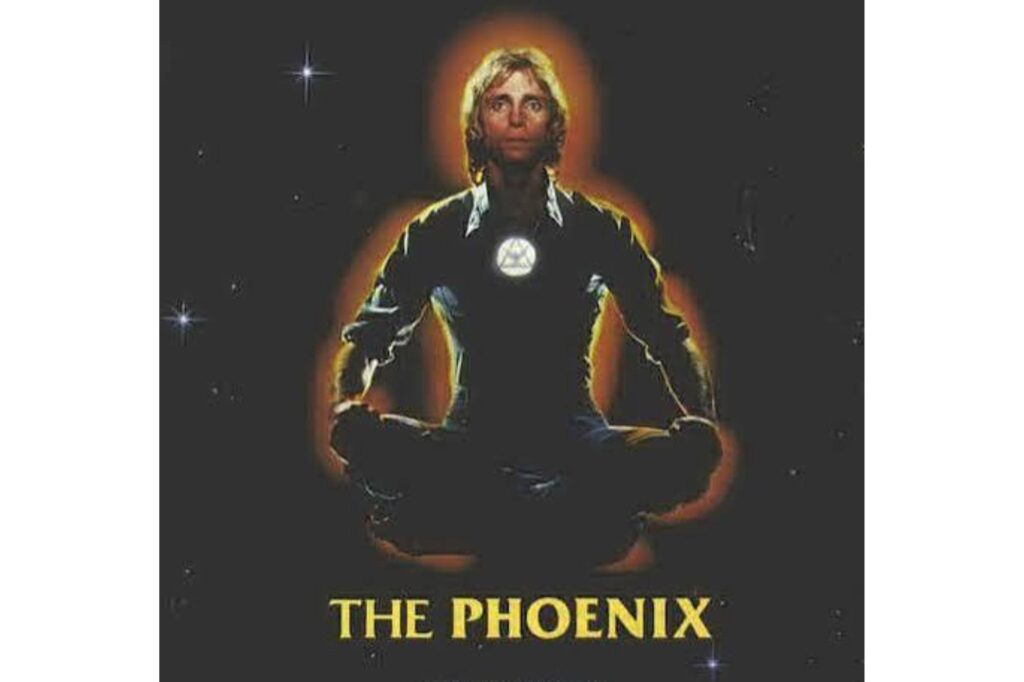
A truly unique entry, The Phoenix blended science fiction, mythology, and New Age spirituality into a short-lived but memorable package. The series followed Fira, an ancient, immortal alien from a distant planet who had been buried in a tomb on Earth for millennia. He is awakened in the modern day, possessing cosmic powers and a quest: to find his soulmate, another surviving member of his race, before his enemies, a mysterious, powerful organization, could find and destroy him. Fira was a pacifist and a deeply spiritual character, offering a distinct contrast to the action heroes of the time. This thoughtful, philosophical approach to sci-fi, combined with the often vague and mystical elements of his alien powers and origins, proved too ambiguous for mainstream audiences expecting more straightforward action. Despite the intriguing premise and a compelling lead actor, the series failed to find its footing and was cancelled after a brief run of only five episodes.
7. Quark (1978)
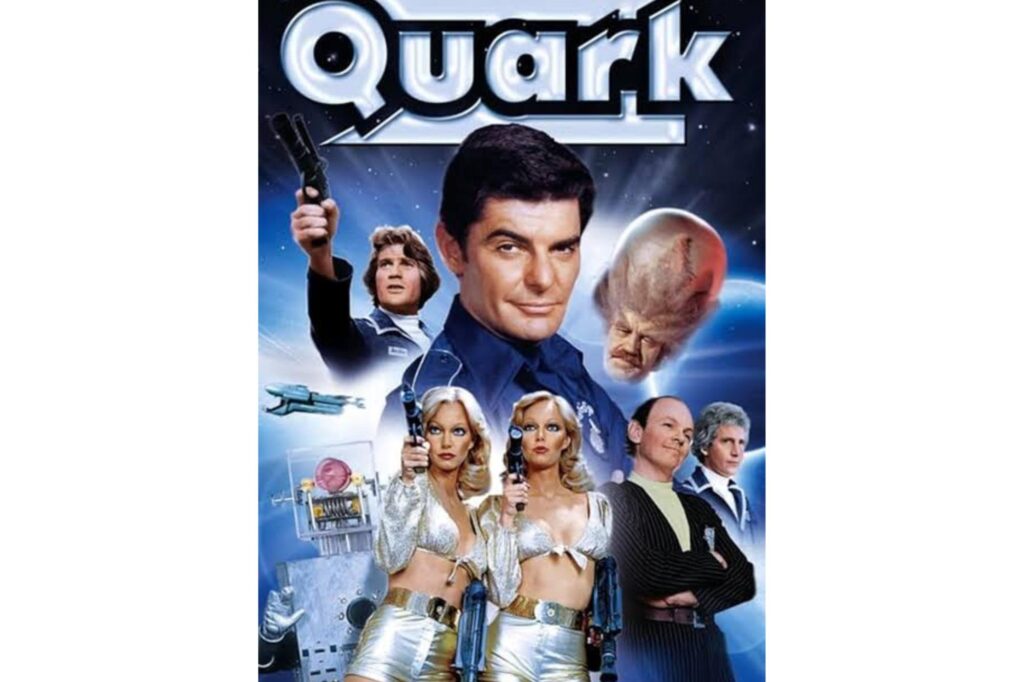
Arriving shortly after the debut of Star Wars and with Star Trek already a cultural phenomenon, Quark was a quick-witted, satirical sci-fi parody that skewered the genre’s most beloved clichés. The show starred Richard Benjamin as Adam Quark, the hapless commander of the United Galactic Sanitation Patrol, a garbage scow patrolling the galaxy. The crew included a pair of identical-but-opposite female clones (Betty I and Betty II), a half-plant navigator, and a robot with multiple personalities. The humor was absurd, self-aware, and often very clever, targeting the illogical plots and stock characters of space operas. Unfortunately, the highly niche humor and rapid-fire gag format, similar to the style of Airplane! (which had not yet come out), was not what typical primetime audiences were looking for. The series lasted for only eight episodes (seven of which aired), becoming a beloved, hidden classic of space comedy for those few who discovered its brilliance.
8. The Powers of Matthew Star (1982)
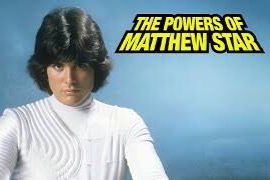
The premise of The Powers of Matthew Star was a blend of teen drama and sci-fi action. Matthew Star was no ordinary high school student: he was, in fact, an alien prince from the planet Quadris, sent to Earth for his protection after his home world was conquered. Posing as a typical teenager, he was secretly guarded by his guardian and mentor, Walt Shepherd. Matthew was endowed with powerful telekinetic and mental abilities, which he had to learn to control while simultaneously dealing with high school angst and constant threats from alien assassins. The show was plagued by bad luck; the leading actor, Peter Barton, suffered a severe injury in an on-set explosion during production, causing a long hiatus that stalled the show’s momentum and forced a substantial retooling of the plots. By the time it returned, audience interest had waned, and the series was cancelled after just one season, leaving its intriguing storyline and potential forever unfulfilled.
9. Hi Honey, I’m Home! (1991)
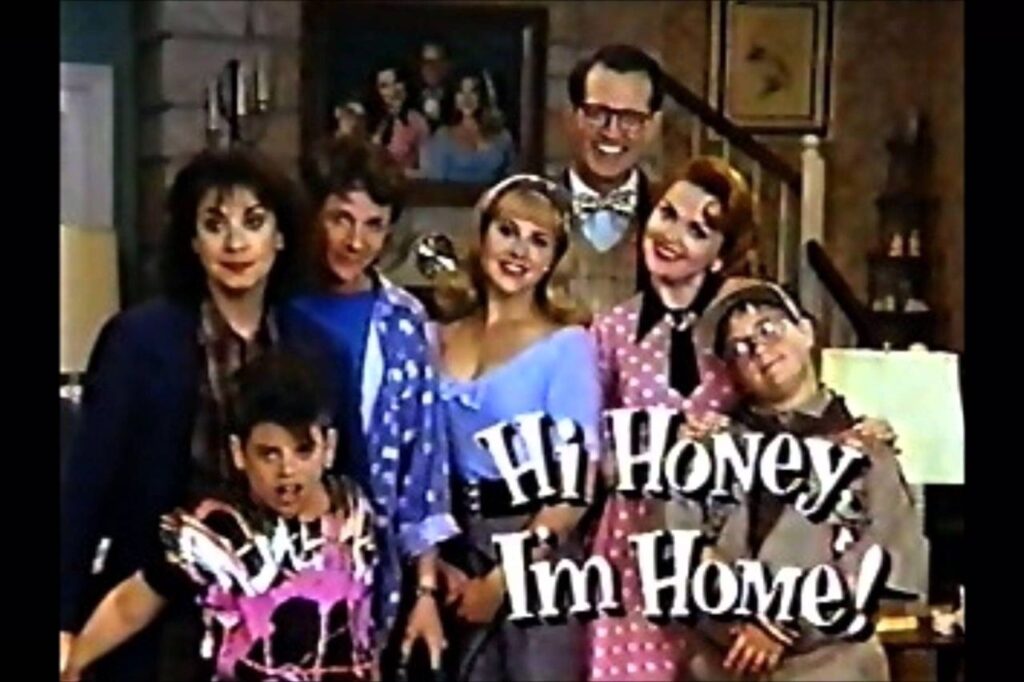
Taking the concept of a meta-sitcom to a truly bizarre place, Hi Honey, I’m Home! imagined that classic 1950s TV characters were real and, after their shows went off the air, moved into the “real world” of 1990s New Jersey. The series centered on the Nielsens, a couple from a fictitious black-and-white 1950s family sitcom, who relocated to a color-filled, hyper-modern 1991 suburb, much to the confusion of their cynical, modern neighbors. The comedy came from the culture clash, the Nielsens’ outdated, overly wholesome moralizing versus the neighbor’s sarcastic, realistic, and often crass worldview. It was a clever satire on nostalgia and the evolution of television tropes, but its complex, multi-layered joke about TV itself was perhaps too clever for its own good. It struggled to find a consistent audience, briefly airing on ABC and then shifting to Nickelodeon’s late-night programming before being cancelled after one season, a pioneering, but short-lived, experiment in TV self-parody.
10. Police Squad! (1982)
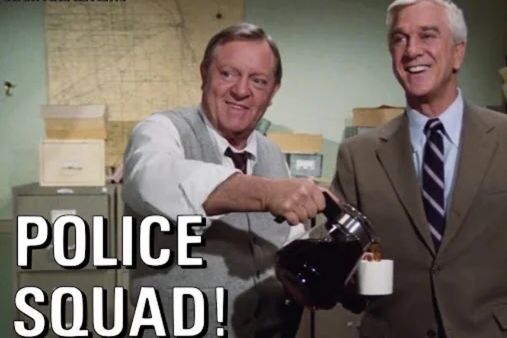
From the creative genius of Jim Abrahams, David Zucker, and Jerry Zucker, the minds behind Airplane!, Police Squad! was a six-episode masterpiece of parody that mercilessly spoofed the clichés of gritty, procedural cop dramas. Starring Leslie Nielsen as the deadpan, utterly serious Detective Frank Drebin, the show was relentless, packed with visual gags, running jokes, and brilliantly absurd wordplay delivered with a stone-cold face. A literal joke would be delivered every few seconds, requiring viewers to pay close attention. Critics and comedy fans adored its breakneck pace and anarchic humor, but its low viewership led ABC to cancel it after just six episodes. The network infamously complained that viewers had to “watch” the show to get the jokes. Though it was a TV failure, its genius was later fully recognized on the big screen. The series was the direct foundation for The Naked Gun film franchise, which became a massive, international comedy hit, proving the Police Squad! concept was simply too brilliant and fast-paced for the slower medium of early 80s television.
11. My Mother the Car (1965)
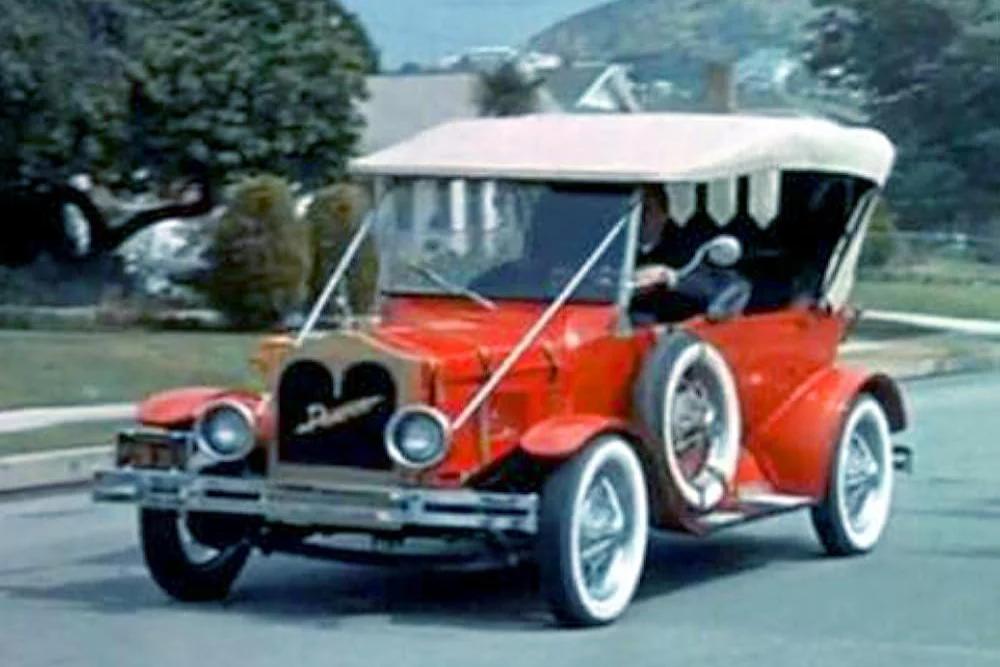
Even today, My Mother the Car remains infamous in television history as one of the most bizarre and inexplicable concepts ever greenlit. The premise centered on an average man named Dave Crabtree who purchases a restored antique car. He is soon shocked to discover that the car’s voice, which only he can hear, is the reincarnated spirit of his deceased mother. The comedy was supposed to arise from the absurdity of a son having to navigate his life, including his marriage, with his overbearing, gossipy, and mechanically-inclined mother constantly commenting from the dashboard. The sheer, relentless absurdity of the concept struggled to maintain an audience, who were seemingly confused by whether to laugh or simply scratch their heads. Despite the anything-goes attitude of 1960s TV, this was a step too far for many viewers. The series survived only one season but left behind a truly indelible, albeit notorious, reputation as one of the strangest and least successful high-concept sitcoms of all time.
12. Out of This World (1987)
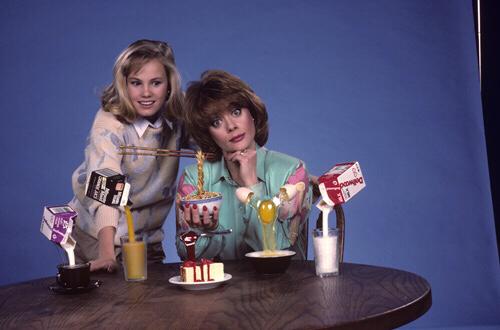
Out of This World was a syndicated sitcom focused on the life of Evie Garland, a seemingly normal teenage girl who discovers on her 13th birthday that her absent father is an alien from the planet Antareus. Her extraterrestrial heritage grants her a host of unique superpowers, most notably the ability to “time-freeze” by pressing her two index fingers together, allowing her to pause the world around her. She can only communicate with her father through a crystal cube device. The show was a staple of late 80s and early 90s Saturday afternoon and weekday afternoon programming for kids and teens. Its lighthearted tone, fun special effects, and relatable teenage storylines, amplified by the wish-fulfillment of having powers, made it a syndication success. Although it had a respectable run of four seasons (80 episodes), it never achieved mainstream prime-time status and was largely forgotten by general audiences once it concluded, remaining mainly a nostalgic touchstone for those who grew up watching it after school.
13. The Banana Splits Adventure Hour (1968–70)
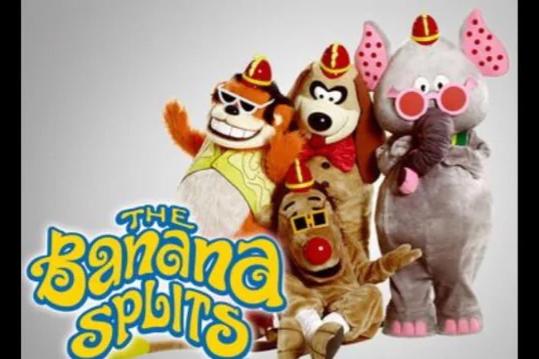
A quintessential piece of late 60s Saturday morning chaos, The Banana Splits Adventure Hour was a loud, colorful, and utterly memorable variety show. It featured four hosts: Fleegle, Bingo, Drooper, and Snorky, life-sized animal characters dressed in shaggy costumes who also formed a garage-rock band. The show combined live-action antics, slapstick comedy sketches, and catchy musical numbers with a rotation of animated segments. The vibrant, almost psychedelic production design and the energetic, playful performances by the costumed band made it a fever dream for children. The show’s appeal was purely aimed at a young demographic, and its chaotic, sometimes baffling energy was often dismissed or ignored by adults. Despite its enduring legacy as a cultural touchstone for a generation, the series was relatively short-lived, running for only two seasons. It remains a vibrant, nostalgic memory that perfectly captured the loud, experimental spirit of late 1960s kids’ entertainment.
14. Voyagers! (1982–83)
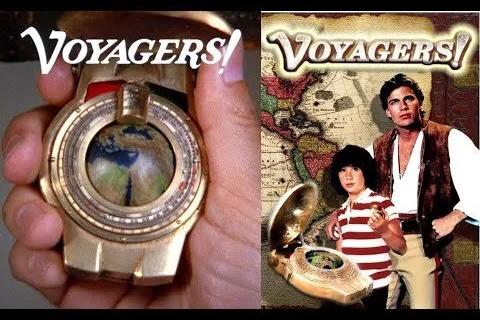
Voyagers! was a clever and compelling educational adventure series centered on Phineas Bogg, a member of a secret society of “Voyagers” who travel through time to keep history on its proper course. Bogg accidentally crash-lands in 1982 and teams up with a history-loving 12-year-old orphan, Jeffrey Jones. Using a pocket-watch-like device called an Omni, the duo jumps to different historical moments, meeting famous figures like George Washington, Cleopatra, and Thomas Edison, and fixing discrepancies in the timeline. The show was a masterful blend of action, period costumes, and factual history lessons, designed to make learning fun for its young audience. Critics praised its clever premise and adventurous spirit, and it garnered a loyal fan base. However, the expense of recreating historical settings and the low ratings in a competitive time slot led to its cancellation after just one season (20 episodes). Fans still campaign for its return, remembering it as a high-quality series that successfully mixed entertainment with education.
15. Holmes & Yoyo (1976)
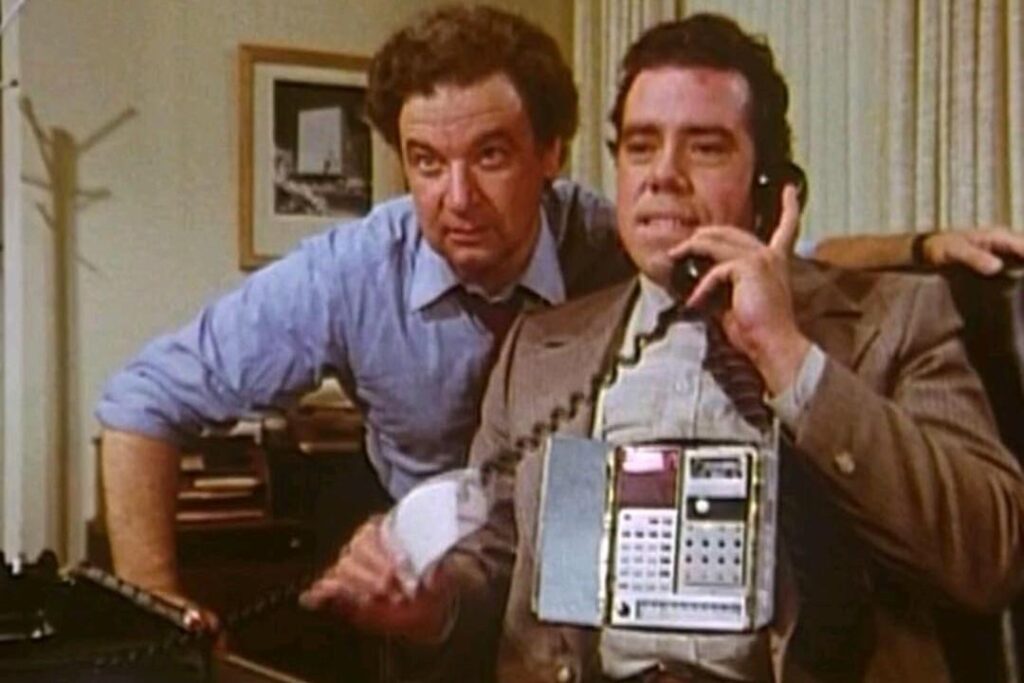
A classic example of a premise that sounded better on paper than in execution, Holmes & Yoyo was a short-lived buddy-cop sitcom with a significant twist. Detective Alex Holmes is partnered with Gregory Yoyo, a new police officer who is secretly a highly sophisticated, but extremely temperamental, android. The comedic potential was obvious: Yoyo was a by-the-book detective, but his robot nature meant he would malfunction at the most inconvenient times, often seizing up or repeating dialogue on a loop. The humor was intended to stem from Holmes’s attempts to cover up his partner’s robotic nature from his superiors and the public. Unfortunately, the writers struggled to find a consistent tone, and the weekly reliance on Yoyo’s physical malfunctions grew repetitive quickly. Audiences found the concept too forced and the comedy too thin. The show was quickly pulled off the air after only 13 episodes were produced (only 7 were broadcast), earning it a spot as a true, quickly forgotten oddity of 1970s television.
16. The Fantastic Journey (1977)
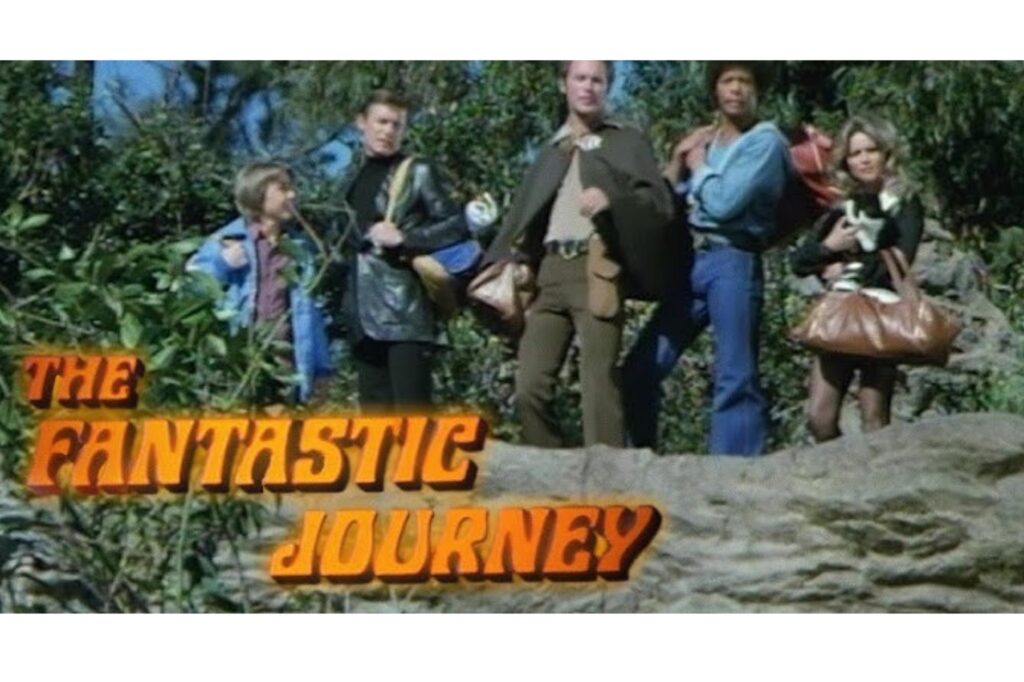
The Fantastic Journey was an ambitious but ultimately confusing sci-fi series that tried to capitalize on the popularity of the Bermuda Triangle’s mysteries. The plot focused on a group of people, a Naval Lieutenant, a scientist, and a civilian, whose research ship is caught in a mysterious magnetic storm within the Triangle. They emerge on a strange, fog-enshrouded island called Atlantis where the inhabitants are people lost in the Triangle from different eras. The island’s physics were unpredictable, creating bizarre zones where time could be frozen, and they constantly encountered visitors from other times and dimensions, including aliens and advanced civilizations. The series attempted to blend action, time travel, and high-concept sci-fi but suffered from uneven writing, limited special effects, and a premise that was perhaps too complex for a weekly audience. It garnered a small, passionate cult following fascinated by its unique concept but was pulled after just ten episodes, leaving its travelers forever lost in a forgotten dimension of TV history.
17. BJ and the Bear (1979–81)
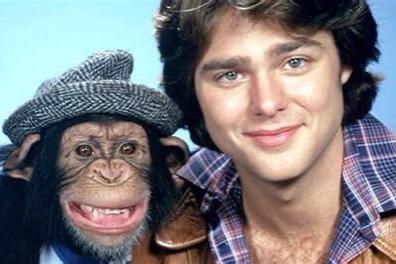
Embodying the late 1970s American fascination with truckers and the open road (a la Smokey and the Bandit), BJ and the Bear was an action-comedy centered on the adventures of Billie Joe “B.J.” McKay, a handsome, independent, and good-natured independent trucker. His co-pilot and constant companion was a highly intelligent, trained chimpanzee named “The Bear.” The show typically featured B.J. driving across the country in his iconic red and white Kenworth truck, getting into various scrapes, helping people in distress, or outsmarting corrupt law enforcement figures, most notably the recurring, comically bumbling Sheriff Lobo. Unlike many shows on this list, BJ and the Bear actually had a respectable run, lasting for three full seasons and even spawning a successful spin-off, The Misadventures of Sheriff Lobo. Despite this relative success, the show and its memorable characters, including the chimp, have largely faded from popular memory, now mainly remembered as a kitschy symbol of late disco-era TV.
18. It’s About Time (1966–67)
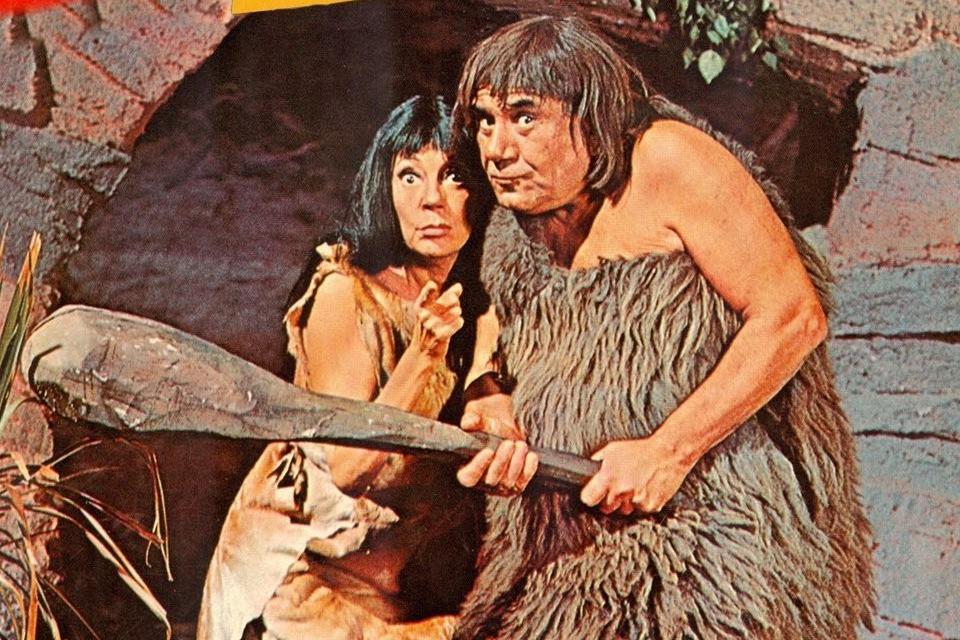
Another example of a truly weird 1960s sitcom premise, It’s About Time focused on two contemporary American astronauts, Mac and Hector, who accidentally break the light barrier in space and are catapulted back to the Stone Age. The show’s first half focused on the astronauts’ attempts to survive among a tribe of friendly but primitive cave people, led by the grumpy chieftain. The second half of the series took an even stranger turn: the cave family, including the astronaut’s cave-wife and cave-kids, are transported back to modern 1960s America, with the humor shifting to a fish-out-of-water dynamic as the cave people adapt to modern life. The constant retooling and bizarre concept meant the show never found a consistent voice or audience. Despite its memorable, though oft-parodied, catchy theme song and colorful characters, the series was ultimately cancelled after just one season due to poor ratings, leaving it a footnote in the history of high-concept, low-result TV comedies.
19. The Highwayman (1987–88)
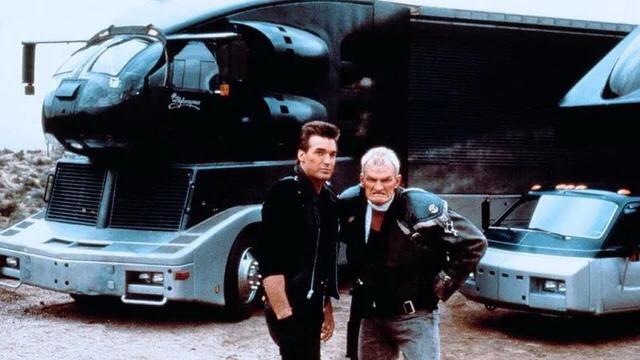
The Highwayman was a blatant attempt to combine the lonely-hero-on-the-road theme of Knight Rider with the post-apocalyptic aesthetic of Mad Max. The show starred Sam J. Jones (best known as Flash Gordon) as the title character, a mysterious federal law enforcement agent working for the government in a near-future America. He patrolled the country’s roads in a high-tech, black “Mobile Fortress”, a customized big rig that could transform into a helicopter, complete with advanced gadgets and weaponry. He was a quintessential lone-wolf hero, often stepping in to protect the innocent from criminals and roadside bandits. Despite the obvious appeal of a transforming truck and the star power of Jones, the series failed to capture the zeitgeist like Knight Rider had a few years earlier. Its heavy borrowing from established sci-fi tropes made it feel derivative, and it was cancelled after a single, 9-episode season, quickly vanishing despite its aggressive marketing and cool concept.
20. Gemini Man (1976)
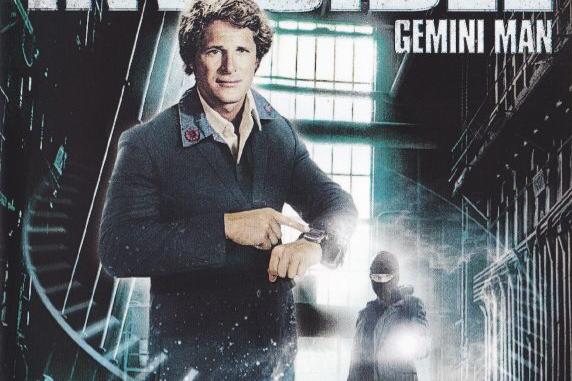
This sci-fi adventure was a truly short-lived entry in the mid-70s television landscape. Gemini Man focused on Sam Casey, a secret agent for an organization called Intersect. While on a mission, he is exposed to a laser beam, causing his molecular structure to become unstable. This accident grants him a unique power: he can become completely invisible for a short period. The crucial caveat, however, was that the invisibility had a strict time limit, if he stayed invisible for more than 15 minutes in a 24-hour cycle, he risked dying. This limitation provided the weekly dramatic tension as he had to complete missions before his time ran out. The show had a clever, high-stakes premise, but a weak script, low budget, and inconsistent direction ultimately undermined its potential. NBC quickly pulled the plug after airing just five episodes, leaving behind a faint memory of an intriguing but ultimately underdeveloped idea in the annals of forgotten 1970s sci-fi.
These shows may not have earned a spot in the pantheon of TV classics, but they represent a time of incredible ambition and pure, unadulterated creativity. They are the fleeting sparks of genius and curiosity that lit up our screens for a moment, reminding us that sometimes, the most interesting experiments are the ones that never quite made it. They dared to try anything, and for that moment, we were all watching.
This story 20 Lost TV Shows Everyone Watched Once, Then Vanished was first published on Daily FETCH


